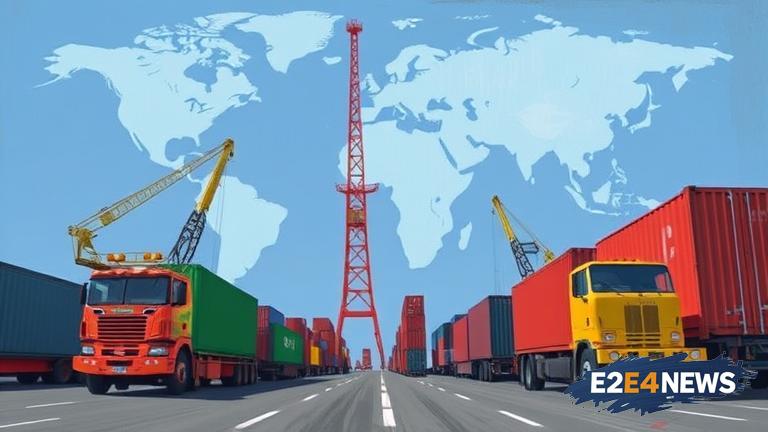The global trade landscape has been thrown into turmoil as US President Donald Trump threatens to impose 30% tariffs on the European Union and Mexico. This move has sparked widespread concern among economists, policymakers, and business leaders, who fear that such a decision could have far-reaching and devastating consequences for the global economy. The tariffs, which would be imposed on a range of goods, including cars, machinery, and agricultural products, would likely lead to a significant increase in prices for consumers and businesses alike. The EU and Mexico have already begun to retaliate, with the EU imposing its own tariffs on US goods and Mexico threatening to do the same. The escalating trade tensions have led to a decline in stock markets and a rise in uncertainty among investors. The US Chamber of Commerce has warned that the tariffs could lead to the loss of hundreds of thousands of jobs and a significant decline in economic growth. The EU has also warned that the tariffs could lead to a trade war, which would have severe consequences for the global economy. The US President’s decision has been widely criticized, with many arguing that it is a misguided attempt to protect American industries. The tariffs would also likely have a significant impact on the US economy, with many businesses relying on imports from the EU and Mexico. The US agricultural sector, in particular, would be heavily affected, as many farmers rely on exports to these countries. The trade tensions have also led to a rise in protectionism, with many countries beginning to impose their own tariffs and trade restrictions. The World Trade Organization has warned that the rise in protectionism could lead to a decline in global trade and a rise in poverty. The US President’s decision has also been criticized by many of his own allies, who argue that it is a mistake to impose tariffs on such a large scale. The EU and Mexico have called for calm and for a return to negotiations, but it remains to be seen whether the US President will back down. The global trade community is holding its breath as it waits to see how the situation will unfold. The consequences of the tariffs could be severe and long-lasting, and it is imperative that a solution is found quickly. The US President’s decision has also raised questions about the future of global trade and the role of the US in the global economy. As the situation continues to unfold, one thing is certain: the global trade landscape will never be the same again.
